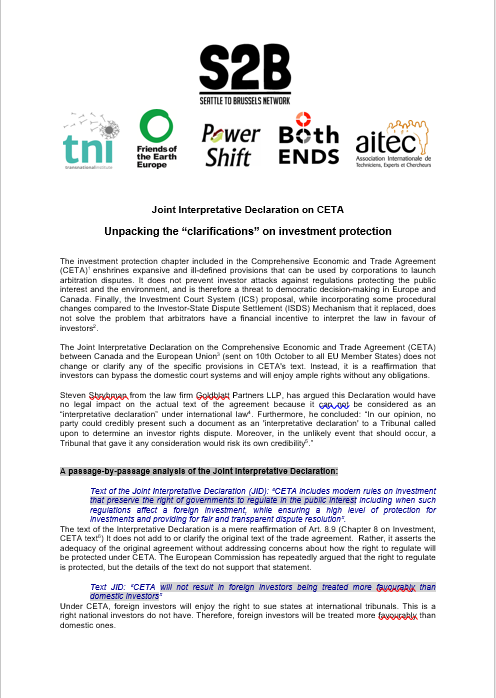
A passage-by-passage analysis of the Joint Interpretative Declaration.
The investment protection chapter included in the Comprehensive Economic and Trade Agreement (CETA) enshrines expansive and ill-defined provisions that can be used by corporations to launch arbitration disputes. It does not prevent investor attacks against regulations protecting the public interest and the environment, and is therefore a threat to democratic decision-making in Europe and Canada. The Investment Court System (ICS) proposal, while incorporating some procedural changes compared to the Investor-State Dispute Settlement (ISDS) Mechanism that it replaced, does not solve the problem that arbitrators have a financial incentive to interpret the law in favour of investors .
The Joint Interpretative Declaration on the Comprehensive Economic and Trade Agreement (CETA) between Canada and the European Union (sent on 10th October to all EU Member States) does not change or clarify any of the specific provisions in CETA’s text. Instead, it is a reaffirmation that investors can bypass the domestic court systems and will enjoy ample rights without any obligations.







